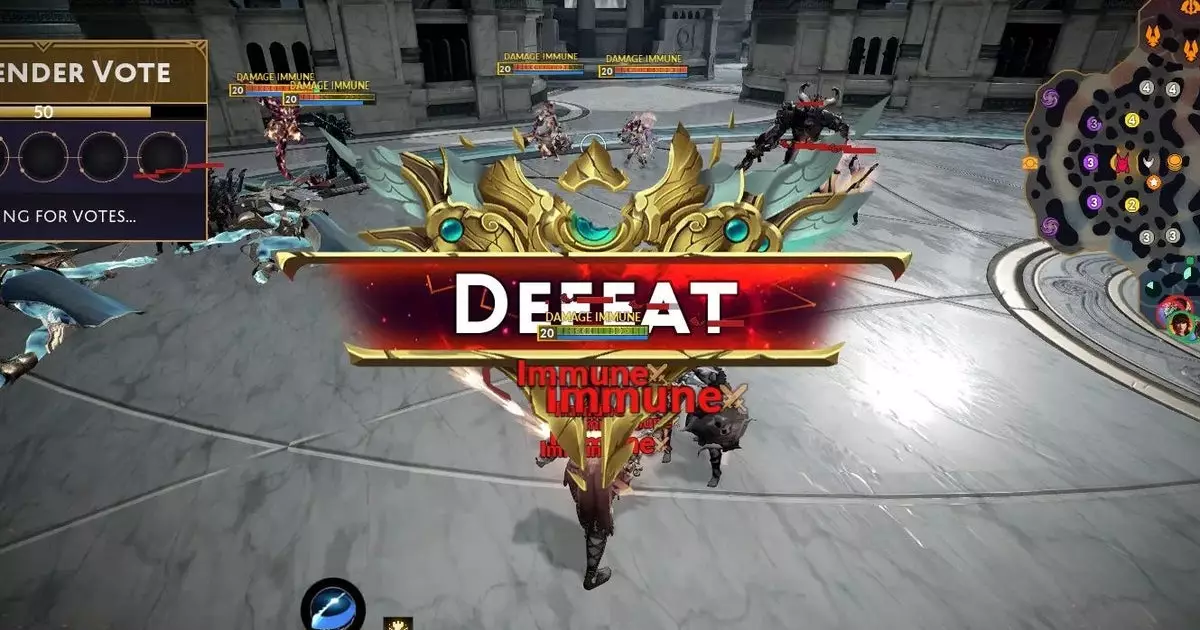The gaming industry, an often tumultuous realm, is witnessing noticeable changes with recent layoffs at Hi-Rez Studios, just as the company struggles to maintain its foothold amidst a fast-evolving market. Known for releasing popular titles such as *Smite* and *Paladins*, Hi-Rez is showing signs of distress less than a month after unveiling the free-to-play beta of its much-anticipated sequel, *Smite 2*. This unfortunate development raises significant concerns regarding not only the studio’s health but also the sustainability of its remaining games.
While Hi-Rez’s management has not confirmed the exact number of personnel affected, insiders speculate the layoffs could involve anywhere from 20 to 60 employees. This uncertainty creates a veil of insecurity, not only for those laid off but for the remaining employees who must now navigate a leaner and more strained work environment. The makeup of those laid off is a telling sign; it includes programmers, UI artists, QA testers, marketing experts, and producers—an alarming breadth of critical roles typically linked to robust game development processes.
Such a drastic workforce reduction cannot help but sow discord within the ranks. It follows a trend of repeated layoffs, with prior rounds occurring as recently as June 2023, marking a troubling pattern that many industry advocates recognize as a sign of deeper issues. This cycle of cutbacks cannot solely be attributed to external market conditions, as evidenced by the studio’s choice to push ahead with *Smite 2*, seemingly at the expense of its established titles like *Paladins* and *Rogue Company*.
The ramifications of these layoffs extend far beyond the immediate job losses. By ceasing updates for popular franchises that have shaped Hi-Rez’s identity, the company risks alienating their dedicated player base, which has historically invested time and resources into these games. Official statements suggest that while servers will remain active, further development for these longstanding titles will halt completely. This decision effectively relegates these games to a state of stagnation, leaving them vulnerable to decay.
The strategic decision to streamline operations and focus entirely on *Smite 2* raises critical questions about the studio’s long-term vision. Will a singular focus yield the desired results in a fiercely competitive gaming marketplace? Analysts suggest this narrowing focus may backfire. Critics assert that *Smite 2* lacks innovative features, leading to concerns that players may drift away to competitors offering a more vibrant gaming experience.
The psychological impact of layoffs cannot be understated. Such drastic workforce reductions often erode company morale and should lead to a culture of fear, especially in creative fields like game development where collaboration and innovation are key to success. The fear of instability can stifle creativity, resulting in lackluster games and decreased productivity from those employees who remain.
Moreover, the departure of CEO Stewart Chisam from social media platforms following the layoffs speaks volumes about the scrutiny that Hi-Rez management is now subjected to. By deleting his account on X, Chisam appears to distance himself from potential backlash, further complicating the narrative regarding the company’s future.
As Hi-Rez Studios grapples with its challenges, it is essential to contextualize their battle within the broader gaming landscape. The industry has been rife with layoffs and studio closures, painting a stark picture of job insecurity. Comparatively, larger companies like BioWare have struggled to communicate transparently about their workforce challenges, further muddying the waters.
In this environment, it’s increasingly critical for studios to not only innovate but also adapt to market shifts and player expectations. The fallout from Hi-Rez’s decision-making will undoubtedly serve as a case study for industry observers and competitors alike as they navigate their own paths forward.
The upheaval at Hi-Rez Studios articulates the fragility of the video game industry and emphasizes the importance of strategic agility in an unforgiving marketplace. As the studio sets its sights solely on *Smite 2*, it must prepare for the scrutiny that will follow. It remains pivotal for leaders in the gaming community to learn from these developments: how to innovate within constraints, revive stalwart franchises, and protect their workforce. Only time will tell if these changes will result in rejuvenation or further decline.


Leave a Reply